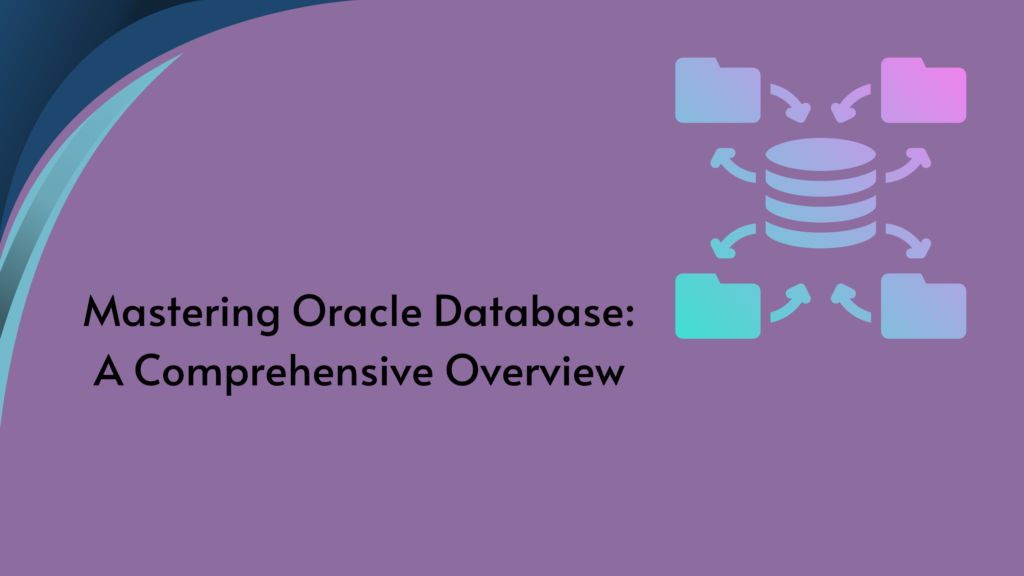Understanding Oracle Database: Functionality, Features, and Future Advancements

In the world of modern data management, Oracle Database stands as one of the most renowned and powerful relational database management systems (RDBMS). In this blog post, we’ll delve into the fundamentals of Oracle Database, its inner workings, notable features, and what the future holds for this technology.
What is an Oracle Database?
Oracle Database, often simply referred to as Oracle, is a sophisticated relational database management system developed by Oracle Corporation. It’s designed to efficiently store, manage, and retrieve vast amounts of data while ensuring data integrity, security, and scalability.
How Does it Work?
Oracle Database works on a client-server model. Here’s a simplified breakdown of how it operates:
- Client Application: Users interact with Oracle Database through client applications like web applications, desktop applications, or command-line interfaces.
- SQL Interface: Communication between the client application and the database occurs using Structured Query Language (SQL). SQL allows users to send queries and commands to the database for various operations, including data retrieval, manipulation, and management.
- Oracle Database Server: The core of the system is the Oracle Database Server, which is responsible for processing SQL queries, managing data, and ensuring data integrity. It consists of various components, including the Oracle Instance, which comprises the Memory Structures and Background Processes.
- Data Storage: Oracle Database stores data in tablespaces, which are logical storage units. Data is further organized into data files, which are stored on disk.
- Data Recovery and Backup: Oracle offers robust data recovery and backup mechanisms to protect against data loss or corruption, including features like RMAN (Recovery Manager).
- Security: Oracle Database provides extensive security features, including authentication, authorization, encryption, and auditing, to protect sensitive data.
Features of Oracle Database
Oracle Database is known for its comprehensive set of features, which contribute to its popularity and versatility. Here are some of the key features:
- High Availability: Oracle offers solutions like Real Application Clusters (RAC) and Data Guard for high availability, ensuring minimal downtime.
- Scalability: It can efficiently scale from small businesses to large enterprises, handling massive datasets and high transaction volumes.
- Security: Robust security features, including encryption, access controls, and auditing, help protect data from unauthorized access and breaches.
- Performance: Oracle Database is optimized for performance with features like in-memory processing, query optimization, and partitioning.
- Advanced Analytics: It supports advanced analytics and data mining, making it suitable for business intelligence and data-driven decision-making.
- Multi-Model Support: Oracle Database supports multiple data models, including relational, XML, and JSON, allowing flexibility in data management.
Future Advances in Oracle Database
Oracle Corporation continually invests in research and development to enhance its database technology. Here are some areas where we can expect future advances:
- Cloud Integration: Oracle is likely to further integrate its database solutions with cloud platforms, offering improved scalability, flexibility, and cost-effectiveness.
- Artificial Intelligence (AI): Oracle may integrate AI and machine learning capabilities to automate performance tuning, security, and data management tasks.
- Blockchain Integration: As blockchain technology gains prominence, Oracle may incorporate it into its database solutions for enhanced data security and traceability.
- Data Privacy and Compliance: Future versions of Oracle Database may emphasize data privacy and compliance with evolving regulations like GDPR and CCPA.
- Enhanced Performance: Expect further optimizations for high-performance computing, particularly for handling real-time data analytics.
In conclusion, Oracle Database remains a cornerstone of data management in enterprises worldwide. Its powerful features, reliability, and adaptability make it a favored choice for organizations of all sizes. As technology continues to evolve, Oracle Corporation will likely keep pace with advancements, ensuring that Oracle Database remains a formidable force in the world of database management.

Leave a Reply